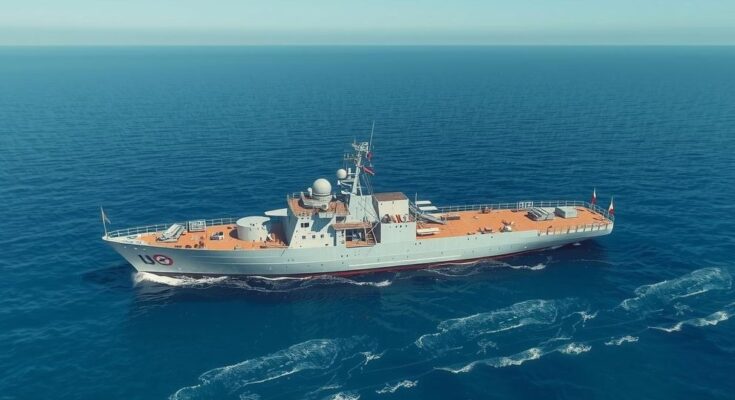In August 1980, a Libyan warship halted a Maltese-contracted oil rig’s operations on the Medina Bank, escalating a dispute over the continental shelf demarcation. This military intervention prompted Malta to seek UN protection, highlighting the fragility of friendly ties. Ultimately, this incident stymied Malta’s oil exploration ambitions and demonstrated that neutrality does not always safeguard against aggressive actions from neighboring states, emphasizing the need for enhanced defense capabilities today.
In August 1980, a Libyan warship intervened against a Maltese-contracted oil rig conducting drilling operations on the Medina Bank. This incident arose from a protracted dispute regarding the demarcation of the continental shelf between Malta and Libya. The rig, operated by Italian workers for Texaco, had just commenced work when they were ordered to cease operations by the Libyan vessel, marking a significant escalation in tensions between the two nations.
The confrontation stemmed from a longstanding disagreement that began in 1972. Libya utilized military intimidation to assert its claims over the disputed waters, relegating Malta’s oil exploration aspirations to the background. Following the incident, Malta’s Permanent Representative to the United Nations, Victor J. Gauci, sought international support through a letter to the UN Security Council, condemning Libya’s actions as unlawful.
In the historical context, Malta had initiated oil concessions in 1974 aiming to alleviate its economic dependence on the British military base, scheduled to close in 1979. The Maltese government proposed an equidistance principle for the demarcation line, while Libya contested this, insisting on geological factors instead, resulting in a deadlock in negotiations. Despite reaching an agreement to address the issue at the International Court of Justice in 1976, Libya’s procrastination stalled progress.
Prime Minister Dom Mintoff expressed urgency in his communications with Libyan leader Muammar Gaddafi, detailing Malta’s aspiration to transition to a neutral state after the military’s departure. Nonetheless, despite ongoing attempts to discuss the oil exploration and demarcation matters, Libya delayed ratification of the agreement, culminating in Malta’s decision to proceed with drilling operations.
In May 1980, tensions escalated further when Libya sent a formal protest against Malta’s planned drilling. The Libyan government explicitly threatened to use military force in response to Malta’s actions, which ultimately led to the confrontation involving the warship. This incident not only halted Malta’s oil exploration but also showcased the precarious nature of regional politics, highlighting the complexities that stem from claims over natural resources.
The international legal proceedings eventually concluded in 1985, with the International Court of Justice ruling that adjusted the continental shelf boundaries in favor of Libya, considering its longer coastline. This ruling, however, pertained to a limited section of the zone, leaving unresolved claims from other nations.
Notably, the incident stands as a stark warning regarding neutrality in international relations, illustrating that assurances of amicable ties do not always deter aggressive actions from neighboring states. As Malta currently seeks to strengthen its defense capabilities amidst evolving geopolitical tensions, particularly in the context of Russian aggression in Ukraine, the lessons from the 1980 incident are indeed pressing and relevant. The necessity of maintaining robust defense mechanisms is accentuated given Malta’s critical infrastructure vulnerabilities.
The Libyan warship incident in August 1980 serves as a critical reflection of the complexities and dangers inherent in regional disputes over natural resources. The conflict highlighted the limitations of neutrality when faced with aggressive actions from neighboring nations. Despite Malta’s aspirations for peace and economic transformation away from reliance on military partnerships, the successful intervention by Libya curtailed Malta’s oil exploration, concluding in a 1985 ruling that further complicated their maritime boundaries. This episode underscores the urgency for Malta to enhance its defense strategies, given its strategic position and vulnerabilities in contemporary geopolitical climates.
Original Source: www.maltatoday.com.mt




